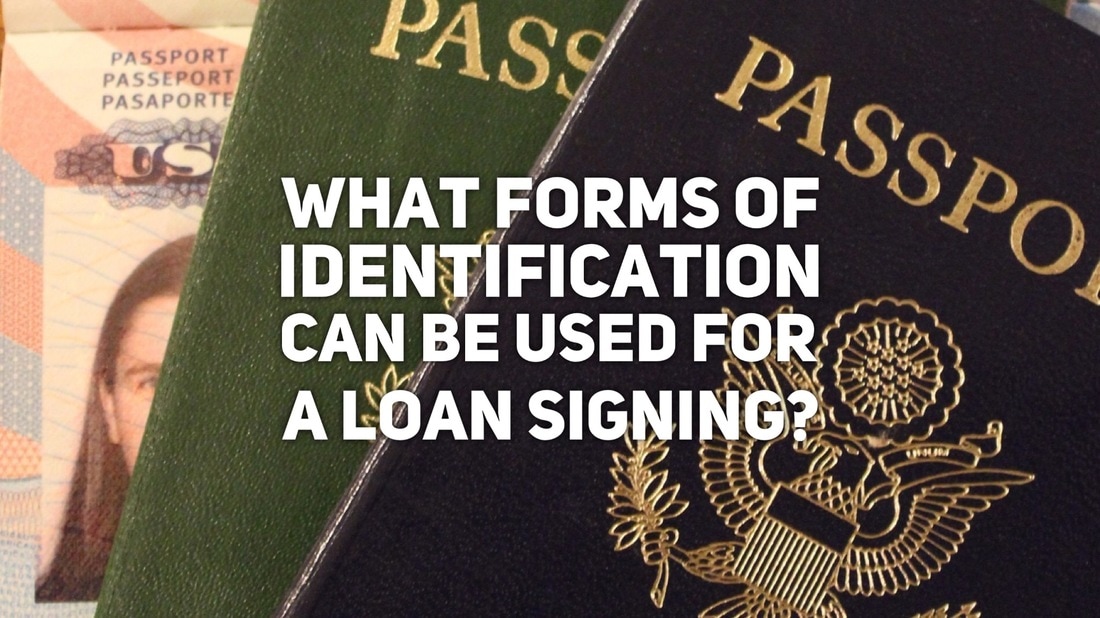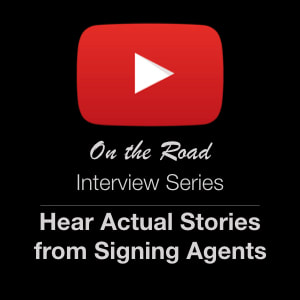|
By Mark Wills - Course Instructor of the Loan Signing System and Forbes Real Estate Council Member, and Best-Selling Author
I’m often asked, “Mark, what forms of IDs can be used for a loan signing? What if an ID is expired? And what about using credible identifying witnesses?”
The answer varies depending on a few factors.
First and foremost, be sure to have knowledge of your state’s notarial laws regarding acceptable forms of IDs. But, whichever form of ID of your state may allow you to identify a borrower with... understand that a lender may require something different... Lender Requirements May Differ From State Law
For example, using expired identification cards is legal in particular states like California and Tennessee. These states allow a notary to use an ID within five years of its date of issue, not relative to the expiration date, to identify a signer.
So in using the same example, while notarizing a document with an expired ID may be allowed according to the state’s notarial laws, it may NOT be allowed by the lender. Why, you may ask? If the set of loan documents your borrower is signing has a PATRIOT Act form (which is a form the signing agent fills out to confirm the identity of the borrower), then an unexpired ID is required. Therefore, if there is a PATRIOT Act form or any kind of ID verification form, an unexpired ID is required — regardless of what your state may allow you to use. However, if your loan document set does NOT have a PATRIOT Act or other ID verification form, then you can follow your state’s ID verification laws. Which leads me to a second common question I receive about identifying borrowers... Can You Use Two Credible Identifying Witnesses to Identify a Borrower for a Loan Signing?
If you don't know what this is, some states allow you to use two witnesses who attest to the borrower’s identity in lieu of any form of identification. This scenario can occur when the borrower has lost their driver's license, for instance.
And once again, how you proceed comes down to what is in the loan documents. If there is a PATRIOT Act or ID verification form that requires information from a non-expired form identification — no. You cannot use two credible identifying witnesses or anything other than a current form of government-issued identification. Similarly, if your loan documents do not have a PATRIOT Act or other ID verification form, then you can use whatever ID laws your state has in place.
It's important to understand that lenders have their own set of rules about what they consider acceptable forms of identification. While some states allow notarization with expired IDs or with credible witnesses, it doesn't mean lenders do.
You can think about it like this — it's the lender's money, after all, so they call the shots. In my experience, 80% to 90% of lender documents have a PATRIOT Act or some type of ID verification form. So it's safe to assume that a borrower will need some sort of government issued unexpired form of ID.
Play it Safe: Ask for an Unexpired Identification
Here is my advice: always make sure the borrower has an unexpired ID present.
Not only because of the PATRIOT Act or customer verification form that is in almost every set of loan documents, but because it ultimately protects you as a notary loan signing agent. Mortgage fraud should not be taken lightly. Yes, you have Errors and Omissions insurance, but do you really want to risk your business and assets by taking the word of two strangers or an unexpired ID to identify someone? It isn't worth the gamble. The reason notary loan signing agents make $75, $100, $125, or $150 dollars per appointment is because it is our responsibility to accurately identify the borrower, without a shadow of a doubt. You, as the notary signing agent, are on the hook for making sure that the person who is signing the loan documents is actually the person who is borrowing the money. And in my opinion, nothing less than an unexpired government issued ID is acceptable. Every single time. How to Make Sure Borrowers Identify Themselves Properly
When you are setting up or confirming a loan signing, it is absolutely appropriate to ask the borrower ahead of time if they have an unexpired government issued ID and to make sure it is present at the appointment.
In conclusion, no matter what your state allows, it’s always the safest and most prudent idea to ask your borrower for a current government-issued ID. Remember, it is your responsibility to make sure that there is zero doubt that the person in front of you is the person who is supposed to be signing the loan documents. If you found this information helpful, you'll love the other tips and strategies I teach in my Loan Signing System online training course for notary signing agents — thousands of people are using my techniques across the country right now to make hundreds or even thousands of dollars every month as notary loan signing agents. I'm Mark, I teach Loan Signing System, and I'm looking forward to showing you how to be a successful, accurate, and efficient notary loan signing agent today! |
About the AuthorMark Wills is a Forbes Real Estate Council member, Loan Signing System Course Instructor & mentor to over 10,000 notary public business owners, and the National Notary Association's Influencer of the Year! Mark Wills is the course instructor of the #1 rated Loan Signing System notary public signing agent training course.
Loan Signing System has thousands of 5-star reviews and has transformed the fortunes of thousands of notary public business owners across the country! ⭐️⭐️⭐️⭐️⭐️ Click the link below to get the course! Archives
July 2024
|
- Homepage
- Courses
- Events
- Testimonials
-
FREE RESOURCES
- Get FREE Training
- 9 Reasons to Be a Signing Agent
- How To Become a Successful Signing Agent in 9 Steps
- How to Become a Notary Public
- Is This Right For You?
- Signing Service Owners Hire Notary Public Signing Agents
- Set Up a Google Business Profile for Notaries
- Four Ways to Get Signing Agent Business
- What is Remote Online Notarization RON?
- How to Get More Notary Jobs: FREE NNA Training
- How to Get More Notary Jobs
- How to Make More Money This Year
- LSS Signing Service Database
- Avoid Common Signing Agent Mistakes
- What Are Tax Deductions?
- Notary Hacks - Episode 1 >
- Maximize Your Notary Tax Deductions
- Snapdocs Interview
-
Notary Training
-
12 Ways to Make Money as a Notary
>
- Remote Online Notarization - Income Potential
- Apostille Agent - Income Potential
- Field Inspector - Income Potential
- Wedding Officiant - Income Potential
- Process Serving - Income Potential
- Permit Runner - Income Potential
- Estate Planning Notarizations - Income Potential
- Advanced Health Care Notarizations - Income Potential
- Mobile Fingerprinting - Income Potential
- Correctional Facilities Notarizations - Income Potential
- I-9 Verification
- Best Kept Secret for Notary Income
- Complete Notary Mentorship
-
12 Ways to Make Money as a Notary
>
- Blog and More!
- Student Login
- FAQ
- Homepage
- Courses
- Events
- Testimonials
-
FREE RESOURCES
- Get FREE Training
- 9 Reasons to Be a Signing Agent
- How To Become a Successful Signing Agent in 9 Steps
- How to Become a Notary Public
- Is This Right For You?
- Signing Service Owners Hire Notary Public Signing Agents
- Set Up a Google Business Profile for Notaries
- Four Ways to Get Signing Agent Business
- What is Remote Online Notarization RON?
- How to Get More Notary Jobs: FREE NNA Training
- How to Get More Notary Jobs
- How to Make More Money This Year
- LSS Signing Service Database
- Avoid Common Signing Agent Mistakes
- What Are Tax Deductions?
- Notary Hacks - Episode 1 >
- Maximize Your Notary Tax Deductions
- Snapdocs Interview
-
Notary Training
-
12 Ways to Make Money as a Notary
>
- Remote Online Notarization - Income Potential
- Apostille Agent - Income Potential
- Field Inspector - Income Potential
- Wedding Officiant - Income Potential
- Process Serving - Income Potential
- Permit Runner - Income Potential
- Estate Planning Notarizations - Income Potential
- Advanced Health Care Notarizations - Income Potential
- Mobile Fingerprinting - Income Potential
- Correctional Facilities Notarizations - Income Potential
- I-9 Verification
- Best Kept Secret for Notary Income
- Complete Notary Mentorship
-
12 Ways to Make Money as a Notary
>
- Blog and More!
- Student Login
- FAQ












